
Students use AI properly in their graduation projects to demonstrate optimal capabilities.
Nowadays, AI is gradually becoming a super powerful tool, a smart virtual assistant that can help you solve countless complex tasks. With many outstanding features, AI can support students a lot in the learning process or even when doing projects.
Using AI for graduation projects: a double-edged sword
AI can generate drafts of text, summarize content, check for grammar and spelling errors, and even suggest ways to make sentences flow more smoothly and professionally. This is especially useful for students who have difficulty expressing ideas in writing.
According to Tuoi Tre Online, some advanced AI tools are capable of generating ideas and suggesting new research directions based on keywords or input data. This can stimulate thinking, broaden students' horizons, and help them escape traditional thinking patterns.
Especially for fields like computer science and engineering, AI can help students create programming code, test algorithms, run complex simulations, or even design initial models. They help speed up project progress and allow students to experiment with more options.
However, the downside of this convenience is the risk of dependence. If students abuse AI, turning it into a "brain" instead of a "tool", they will fall into a state of "lazy thinking". Instead of facing, analyzing and solving problems themselves, they leave it to AI, ignoring the process of learning, in-depth research and especially training critical thinking - the core elements to form the true capacity of a learner.
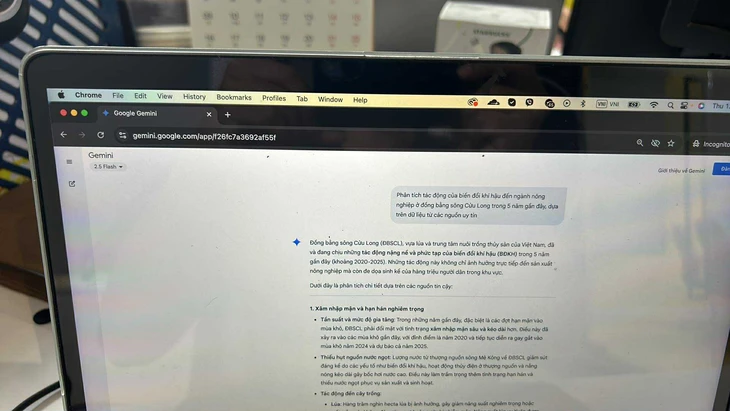
How you ask questions (promt) to AI is very important and shows your understanding of the topic - Photo: DONG HAI
Notes when using AI for projects
Don't trust AI completely. Sometimes AI can give you false or inaccurate information (called "hallucination"). You should always double-check the information and data provided by AI by comparing it with other reputable sources.
Try to take the time and think to analyze more deeply what the AI provides. For example, the AI may summarize, but you should be the one to make in-depth observations, assessments, comparisons, and conclusions. Ask yourself: "Why is this information important?", "How does it relate to other parts of my project?" This demonstrates your critical thinking and ability to look at problems from multiple perspectives.
Don't copy what the AI generates verbatim. Edit the sentences, add ideas, and expand on the AI's suggestions in your own style and thinking.
Include real-life examples, analysis based on personal experience, or your unique observations.
AI can help you synthesize information, but the solid expertise must still be yours. When the panel asks questions, you must confidently answer based on your real understanding.
In particular, you should regularly interact with your graduate advisor or lecturer. The lecturer will guide you on how to ask questions of AI, how to check the reliability of information, and how to scientifically integrate the results from AI into your work.
Tips to make your project really quality
To make your graduation project both effective with AI and demonstrate your true abilities, remember to regularly communicate with your lecturers, they can give valuable advice on how to use AI properly.
Also, be sure to read your school’s rules on using AI in your project to avoid violating them. If you use AI to compile information, make sure to include it.
AI is a powerful tool. Make it your smart companion to help you improve the quality of your projects, maximize your abilities, and confidently step into the future.
Source: https://tuoitre.vn/dung-ai-cho-do-an-tot-nghiep-dung-quen-nhung-dieu-nay-20250612141438464.htm











































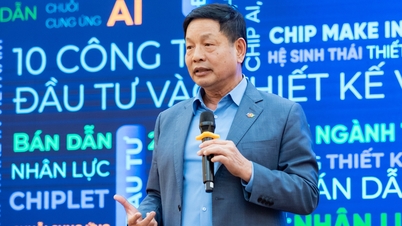


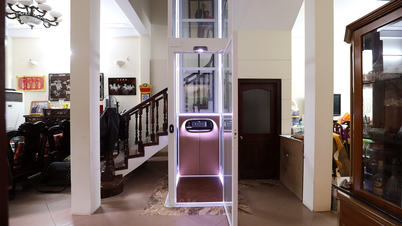










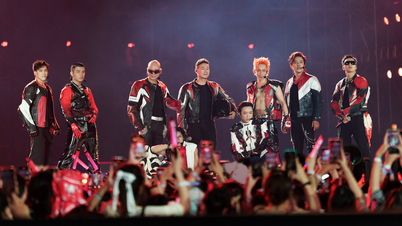







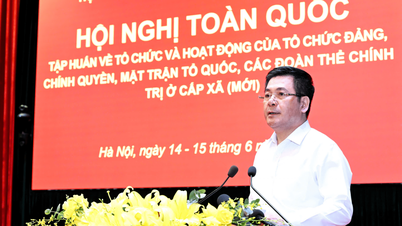


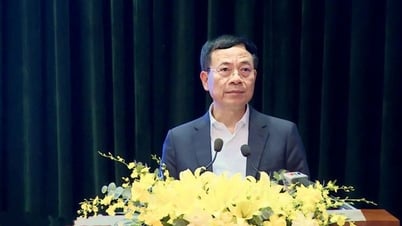



























Comment (0)